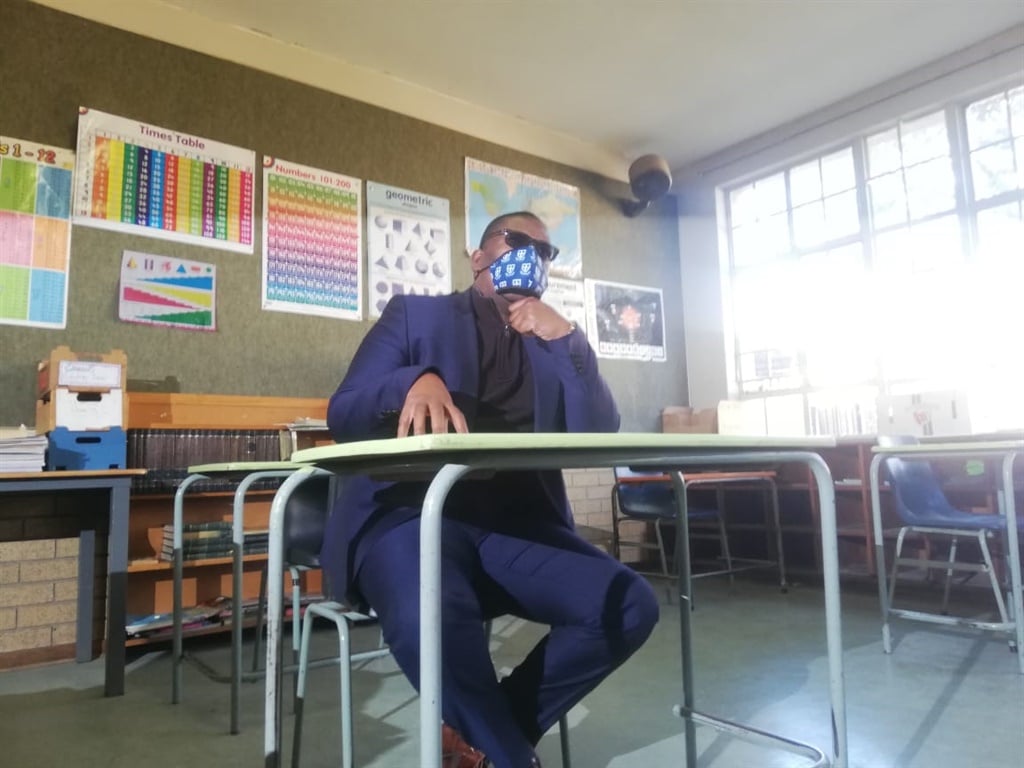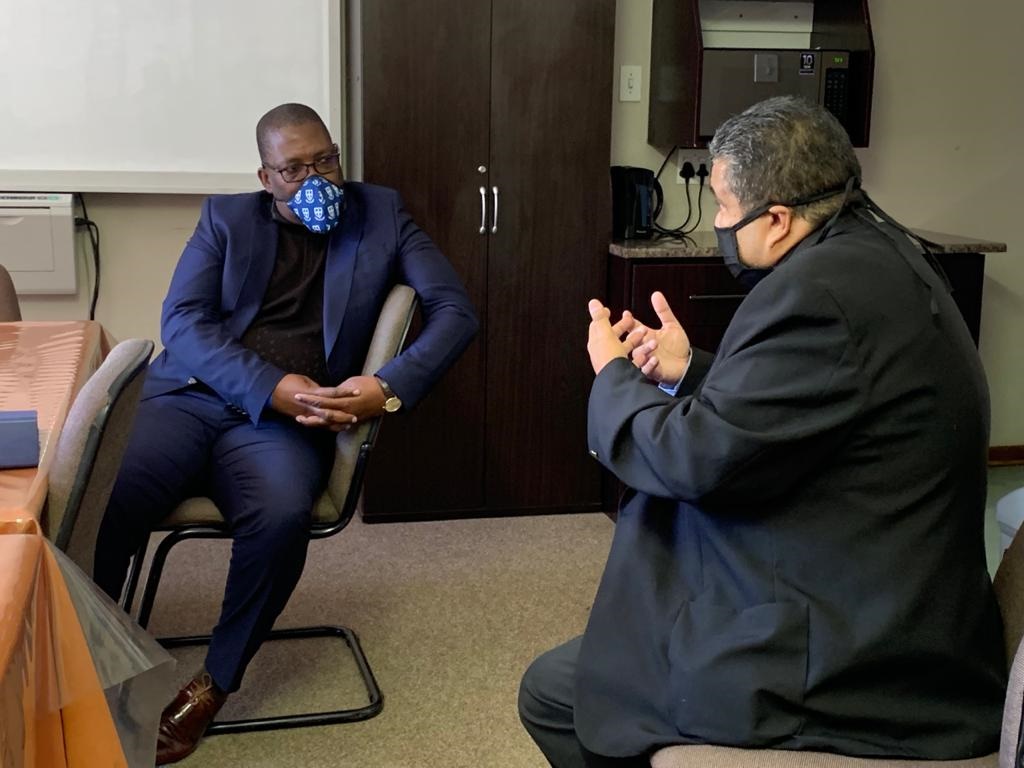
Schools reopening: Challenges faced by special needs schools make it a 'difficult sector'
by Azarrah Karrim- Schools catering to learners with special needs will experience unique challenges when they reopen on Monday.
- Principal of Randburg Clinic School Ronald Bachelor says a one-size-fits-all approach will not work with learners in special needs schools.
- Gauteng Education MEC Panyaza Lesufi said the sector is a difficult one and constant support will need to be provided to these schools.
Gauteng Education MEC Panyaza Lesufi says schools working with learners with special needs may experience some unique challenges in the transition to the new way of operating during the Covid-19 pandemic.
He described it as a "difficult sector".
During an inspection visit to Randburg Clinic School – a school catering for learners with autism and severe behavioural disorders - Lesufi heard of the difficulties the school anticipate.

Lesufi said the department had given thought to these challenges before deciding on the reopening of schools.
He said this was part of the reason why there had been some delays in the announcement.
"It's a very difficult sector, I must say, and that is what's happening now with the [early childhood development] ECD sector… there are specific rules that need to be adhered to, so that we are all safe.
"But with the guidelines that the principal is alluding to, the difficulty is that you can't have a rule for the sector. You have to have a rule per learner or a rule per school, and in making legislation that kind of arrangement is very difficult," Lesufi said.
READ | Teachers at 2 more Western Cape schools test positive for Covid-19
The Randburg Clinic School has implemented a range of measures to curb Covid-19, including screening before entering. In fact, Lesufi himself registered higher than the required temperature and was made to wait 10 minutes before screening again.
He was eventually screened at about 36 degrees and was allowed to proceed.
The school's principal, Ronald Bachelor, said their main challenge was not so much about the physical measures to prevent Covid-19, but rather with the learners themselves, who might not understand how to follow the steps.
"The biggest challenge that you would have is that, with special needs learners, the children have to play together - there's not a very structured curriculum that they can follow," Bachelor said.
"Most of the time, the children are learning through play and the different activities in which they interact with each other, so it's going to be a challenge for all in the special needs sector.
"It takes a special needs child longer to learn. [With] social distancing, many of the learners cannot read as such, so it will be a novelty for them and it will take us longer to teach them all the regulations – our six golden rules – it's going to take them longer to do that," he added.
ALSO READ | Lesufi seeks advice on West Rand school reopening after 164 miners in the area test positive
Sanitising and mask wearing will present a new challenge as special needs learners are sensitive to smells as well as certain materials.
"Something as simple as a mask is a stumbling block for us – we have no idea how we are going to get our children to actually wear the mask because our children can't even wear their hoodies.
"We have to compromise in allowing them not to wear uniforms because one autistic child can only use a certain fabric or he is averse to certain colours," Bachelor explained.
He added that the environment must be adapted to suit the learner - "this is going to be the challenge we are going to have".
"In special schools, there is no one-size-fits-all; all the children are different and that's the big problem."
Because of this, Lesufi said support for these schools would be needed at all times, including nurses, teachers and social support.
"We really believe the Covid-19 arrangement is assisting us to have a special way and a special caring system that must be in place," he said.